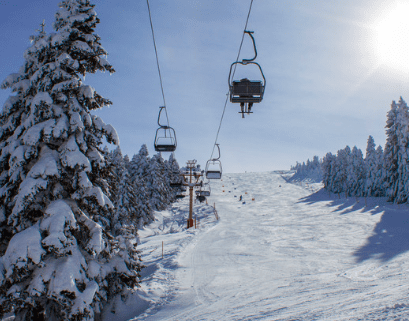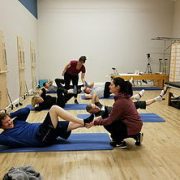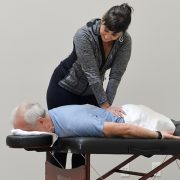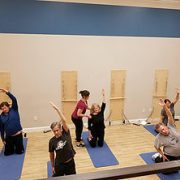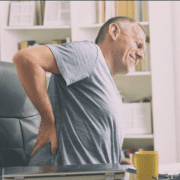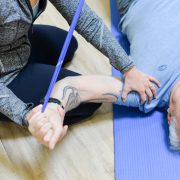Four tips to Protect your Knees and Avoid Injury when Skiing
Skiing can put a lot of stress on your knee joints and if you’re not careful – lead to pain and injury.
Your knee joint requires both mobility and stability to function well. It’s important for your knee joint to be mobile enough to allow for a full range of motion. But, it also needs to be stable enough to support your body weight and absorb the forces that come with everyday activities. When it comes to skiing, mobility is going to protect your knees when you fall, and stability is going to keep your knees feeling strong as you twist and turn down the slopes. Maintaining a balance between mobility and stability is crucial for knee joint health in general. It certainly is crucial when it comes to skiing.
Here are four tips to help protect your knees and avoid injury when skiing:
1. Warm up before hitting the slopes.
When you take the time to stretch and warm-up your muscles before skiing your knee is not only going to feel better, but be better equipped to handle the stress of the day. Warming up helps to increase blood flow to your muscles and improve your strength, endurance and agility on the slopes.
When warming up, choose exercises that take your knee, hips and ankles through full range of motion. Plus – if skiing is a day trip for you, you’ve likely just sat in the car for an hour or more. Prolonged sitting puts extra stress and compression on your knee joint, especially in the front of your knees. Warming up your knees can help relieve this added stress on your joints before you hit the slopes.
2. Strengthen your upper leg muscles and core
Having good strength of your upper legs and core can help improve both the stability and alignment of your knee joint – which is important during skiing.
Your knee joint is surrounded by a complex network of muscles, ligaments, and tendons. When the muscles around your knee joint are weak, imbalanced, or simply not functioning well – this will cause your knee to move in ways that add extra stress to your joint. Given the stress skiing already adds, you don’t want to make your knee work any harder.
Strengthening your core and upper leg muscles will improve the alignment of your knee during activity, reduce the risk of injury, and improve the overall function of your knee – which can only help you when skiing.
3. Keep your Knees Mobile
Full and free mobility of your knee joint is important. It helps maintain the health of your joint and surrounding tissues.
When your knee (or any) joint doesn’t move well, you will get added stress on your ligaments, cartilage, and tendons. Your knees need to bend all the way so you can squat and pick things up. They need to straighten all the way to give you stability when needed. When either of these motions are lacking – your knee joint suffers.
When it comes to skiing, if your ligaments and surrounding tissues are already stressed due to lack of mobility in everyday movement – they will certainly not be happy when you add the stress of skiing. Having a good mobility routine for your knees as a preventative activity is important. It’s going to really pay off when you go to hit the slopes each ski season.
4. Talk to a mechanical pain expert
70% of all knee pain is going to be mechanical in nature. Everything I’ve already described above is going to help you deal with mechanical movement faults that might be happening in your knee joint. But occasionally, despite all your best efforts, you need help from someone who specializes in mechanical joint pain.
Mechanical joint pain responds very well to what we call “corrective movements”. When you know what specific movement your joint needs to feel better, it literally acts like a prescription medication. You can use that movement any time you want to help relieve knee pain on your own. This is particularly advantageous when you’ve gone a little overboard on the slopes. You can “fix” your knee and be ready for the next day.
If you’ve already tried many of the strategies I mentioned, and continue to have knee pain when you ski, it might be worth visiting a mechanical pain expert to help set you on a customized path to preventing knee pain and avoiding an injury that requires more invasive intervention down the line.
It’s more fun to focus on the ski day ahead than worry about whether or not your knee joints can handle it.
I hope these tips help you to not only enjoy what’s left of ski season – but help you have healthier knees in general to keep enjoying all of the activities you love.
Local to Portsmouth, NH and need help with your knee pain NOW?
CLICK HERE to request a Free Discovery Session with one of my Specialists. They’ll ask you all about what’s been going on – and figure out if we would be a good fit to help.
Dr. Carrie Jose, Physical Therapist and Pilates expert, owns CJ Physical Therapy & Pilates in Portsmouth. To get a FREE copy of her guide to knee pain – CLICK HERE

